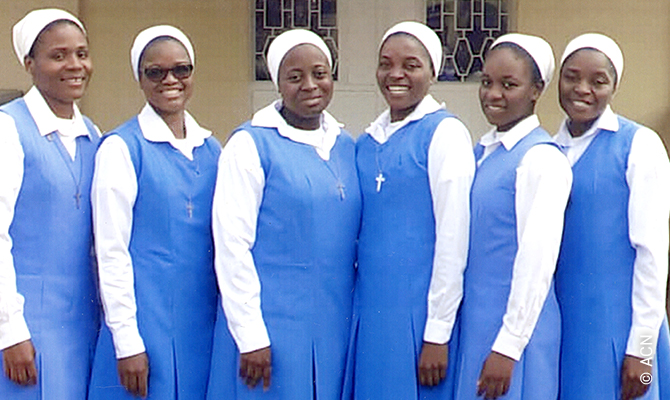For many years Cameroon in Central-West Africa, with its 24 million inhabitants, has been regarded as a relatively stable country in comparison with its crisis-racked neighbours. However, in 2016 there were protest marches in the English-speaking region against a perceived marginalisation in this predominantly French-speaking country. Since then these protests have escalated into a major and ongoing armed conflict between the central government and the separatists in the Anglophone provinces. Thousands of people have been killed and hundreds of thousands forced to flee as a result. And not infrequently there have been abductions of individual Church personnel and teachers, and even priests.
The Sisters of Saint Anne are a congregation founded in Italy in the nineteenth century, above all to educate and support poor and disadvantaged children and young people. Their formation house is close to the city of Bamenda, which is just one mile (2 km) from the area where the fighting is raging. “There is a prevailing atmosphere of fear”, says Sister Pamela Bongben, who runs the formation house.





